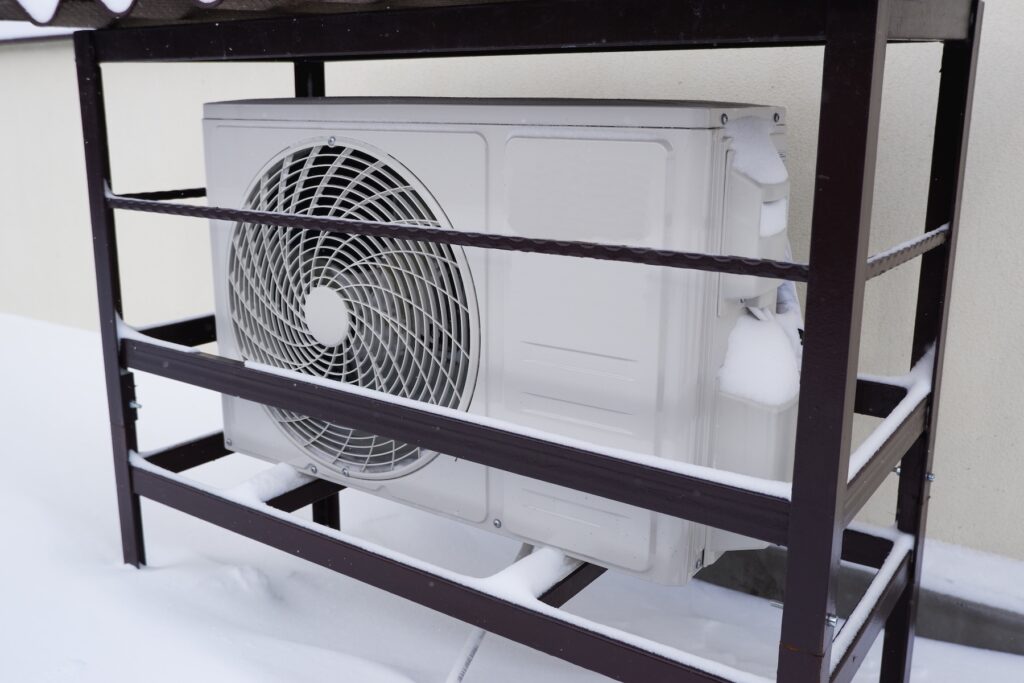
Heat pumps are one of the most energy efficient options for home heating, but are you getting the most out of yours? Many homeowners unknowingly miss simple tricks to maximize their heat pump’s performance. In this blog, we’ll walk you through practical tips to ensure your heat pump operates at its peak efficiency, helping you stay warm and save energy all winter long.
1. Check Your Insulation
Are your energy costs going up even though your habits have stayed the same? It’s easy to blame your heat pump, but it might not be the problem. More likely, your home isn’t insulated properly.
Without adequate insulation, heat will seep out of your house quickly. Your heat pump will have to work harder to heat your home as a result, which increases energy usage. Improving insulation in your attic, basement, and exterior walls minimizes heat loss, reducing the strain on your heat pump.
Think you need insulation upgrades? Schedule a no-cost Home Energy Assessment with Neeeco. We can help you save 75-100% on an insulation upgrade with Mass Save® rebates.
2. Clean Your Air Filters
One of the easiest ways to use your heat pump efficiently is to keep the filter clean. The air filter catches dust and other contaminants that move through the system. As it fills up, it gets harder for the heat pump to push air through the filter, increasing energy usage. It’s generally recommended that you clean the filter every 30 to 90 days for optimal energy efficiency.
3. Find & Seal Air Leaks
Air leaks are small gaps and cracks in your home’s construction that let air travel freely into and out of your home. In the winter, air leaks let warm air escape while cold air flows in, creating cold drafts and making it harder for your heat pump to keep your home warm. During a no-cost Mass Save Home Energy Assessment, we can locate air leaks in your home. Depending on where the leaks are located and how bad they are, you may be eligible for no-cost Mass Save air sealing.
4. Keep the Outdoor Unit Clear
Snow, ice, and debris can block airflow around your heat pump’s outdoor unit, which can cause several problems, including reduced energy efficiency. During the winter, check the outdoor unit every few weeks and clear away any obstructions to help your heat pump maintain its energy efficiency.
5. Avoid Auto Mode
Heat pumps have three modes: heat, cool, and auto. If you put your heat pump in auto mode, it will automatically switch between heating and cooling. This can be convenient, but it’s not always reliable, especially in the early spring and late fall when temperatures can vary dramatically throughout the day. You don’t want your heat pump to switch into cooling mode on an unseasonably warm winter afternoon when you could just turn the heat off instead.
6. Prioritize Maintenance
Heat pumps, like all HVAC systems, need regular maintenance. An annual maintenance check will help keep your heat pump working as energy efficiently as possible for as long as possible. Plus, it will allow you to catch small problems before they snowball into costly repairs.
7. Finally, Consider a Replacement
If your heat pump is over 10 years old, it might be time to think about replacing it. Heat pumps become less efficient with age and, eventually, will stop working altogether. If your heat pump is struggling to keep your home comfortable and is operating less efficiently than it used to, it might be time for a replacement.
*Some restrictions apply. Offers are subject to change or cancellation. Visit MassSave.com/HEA for full details.
